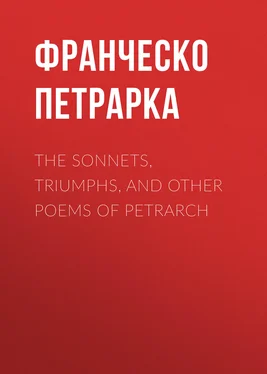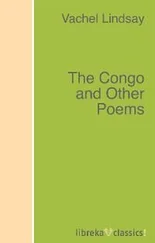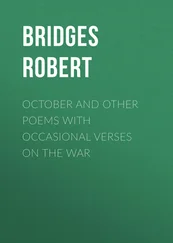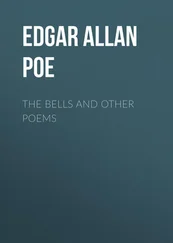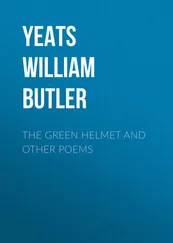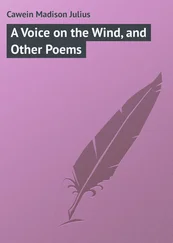Франческо Петрарка - The Sonnets, Triumphs, and Other Poems of Petrarch
Здесь есть возможность читать онлайн «Франческо Петрарка - The Sonnets, Triumphs, and Other Poems of Petrarch» — ознакомительный отрывок электронной книги совершенно бесплатно, а после прочтения отрывка купить полную версию. В некоторых случаях можно слушать аудио, скачать через торрент в формате fb2 и присутствует краткое содержание. Жанр: foreign_poetry, Поэзия, foreign_antique, foreign_prose, на английском языке. Описание произведения, (предисловие) а так же отзывы посетителей доступны на портале библиотеки ЛибКат.
- Название:The Sonnets, Triumphs, and Other Poems of Petrarch
- Автор:
- Жанр:
- Год:неизвестен
- ISBN:нет данных
- Рейтинг книги:5 / 5. Голосов: 1
-
Избранное:Добавить в избранное
- Отзывы:
-
Ваша оценка:
- 100
- 1
- 2
- 3
- 4
- 5
The Sonnets, Triumphs, and Other Poems of Petrarch: краткое содержание, описание и аннотация
Предлагаем к чтению аннотацию, описание, краткое содержание или предисловие (зависит от того, что написал сам автор книги «The Sonnets, Triumphs, and Other Poems of Petrarch»). Если вы не нашли необходимую информацию о книге — напишите в комментариях, мы постараемся отыскать её.
The Sonnets, Triumphs, and Other Poems of Petrarch — читать онлайн ознакомительный отрывок
Ниже представлен текст книги, разбитый по страницам. Система сохранения места последней прочитанной страницы, позволяет с удобством читать онлайн бесплатно книгу «The Sonnets, Triumphs, and Other Poems of Petrarch», без необходимости каждый раз заново искать на чём Вы остановились. Поставьте закладку, и сможете в любой момент перейти на страницу, на которой закончили чтение.
Интервал:
Закладка:
However this may be, Petrarch deceived himself if he expected to have long tranquillity in such a court as that of Milan. He was perpetually obliged to visit the Viscontis, and to be present at every feast that they gave to honour the arrival of any illustrious stranger. A more than usually important visitant soon came to Milan, in the person of Cardinal Egidio Albornoz, who arrived at the head of an army, with a view to restore to the Church large portions of its territory which had been seized by some powerful families. The Cardinal entered Milan on the 14th of September, 1353. John Visconti, though far from being delighted at his arrival, gave him an honourable reception, defrayed all the expenses of his numerous retinue, and treated him magnificently. He went out himself to meet him, two miles from the city, accompanied by his nephews and his courtiers, including Petrarch. Our poet joined the suite of Galeazzo Visconti, and rode near him. The Legate and his retinue rode also on horseback. When the two parties met, the dust, that rose in clouds from the feet of the horses, prevented them from discerning each other. Petrarch, who had advanced beyond the rest, found himself, he knew not how, in the midst of the Legate's train, and very near to him. Salutations passed on either side, but with very little speaking, for the dust had dried their throats.
Petrarch made a backward movement, to regain his place among his company. His horse, in backing, slipped with his hind-legs into a ditch on the side of the road, but, by a sort of miracle, the animal kept his fore-feet for some time on the top of the ditch. If he had fallen back, he must have crushed his rider. Petrarch was not afraid, for he was not aware of his danger; but Galeazzo Visconti and his people dismounted to rescue the poet, who escaped without injury.
The Legate treated Petrarch, who little expected it, with the utmost kindness and distinction, and, granting all that he asked for his friends, pressed him to mention something worthy of his own acceptance. Petrarch replied: "When I ask for my friends, is it not the same as for myself? Have I not the highest satisfaction in receiving favours for them? I have long put a rein on my own desires. Of what, then, can I stand in need?"
After the departure of the Legate, Petrarch retired to his rus in urbe . In a letter dated thence to his friend the Prior of the Holy Apostles, we find him acknowledging feelings that were far distant from settled contentment. "You have heard," he says, "how much my peace has been disturbed, and my leisure broken in upon, by an importunate crowd and by unforeseen occupations. The Legate has left Milan. He was received at Florence with unbounded applause: as for poor me, I am again in my retreat. I have been long free, happy, and master of my time; but I feel, at present, that liberty and leisure are only for souls of consummate virtue. When we are not of that class of beings, nothing is more dangerous for a heart subject to the passions than to be free, idle, and alone. The snares of voluptuousness are then more dangerous, and corrupt thoughts gain an easier entrance—above all, love, that seducing tormentor, from whom I thought that I had now nothing more to fear."
From these expressions we might almost conclude that he had again fallen in love; but if it was so, we have no evidence as to the object of his new passion.
During his half-retirement, Petrarch learned news which disturbed his repose. A courier arrived, one night, bringing an account of the entire destruction of the Genoese fleet, in a naval combat with that of the Venetians, which took place on the 19th of August, 1353, near the island of Sardinia. The letters which the poet had written, in order to conciliate those two republics, had proved as useless as the pacificatory efforts of Clement VI. and his successor, Innocent. Petrarch, who had constantly predicted the eventual success of Genoa, could hardly believe his senses, when he heard of the Genoese being defeated at sea. He wrote a letter of lamentation and astonishment on the subject to his friend Guido Settimo. He saw, as it were, one of the eyes of his country destroying the other. The courier, who brought these tidings to Milan, gave a distressing account of the state of Genoa. There was not a family which had not lost one of its members.
Petrarch passed a whole night in composing a letter to the Genoese, in which he exhorted them, after the example of the Romans, never to despair of the republic. His lecture never reached them. On awakening in the morning, Petrarch learned that the Genoese had lost every spark of their courage, and that the day before they had subscribed the most humiliating concessions in despair.
It has been alleged by some of his biographers that Petrarch suppressed his letter to the Genoese from his fear of the Visconti family. John Visconti had views on Genoa, which was a port so conveniently situated that he naturally coveted the possession of it. He invested it on all sides by land, whilst its other enemies blockaded it by sea; so that the city was reduced to famine. The partizans of John Visconti insinuated to the Genoese that they had no other remedy than to place themselves under the protection of the Prince of Milan. Petrarch was not ignorant of the Visconti's views; and it has been, therefore, suspected that he kept back his exhortatory epistle from his apprehension, that if he had despatched it, John Visconti would have made it the last epistle of his life. The morning after writing it, he found that Genoa had signed a treaty of almost abject submission; after which his exhortation would have been only an insult to the vanquished.
The Genoese were not long in deliberating on the measures which they were to take. In a few days their deputies arrived at Milan, imploring the aid and protection of John Visconti, as well as offering him the republic of Genoa and all that belonged to it. After some conferences, the articles of the treaty were signed; and the Lord of Milan accepted with pleasure the possession that was offered to him.
Petrarch, as a counsellor of Milan, attended these conferences, and condoled with the deputies from Genoa; though we cannot suppose that he approved, in his heart, of the desperate submission of the Genoese in thus throwing themselves into the arms of the tyrant of Italy, who had been so long anxious either to invade them in open quarrel, or to enter their States upon a more amicable pretext. John Visconti immediately took possession of the city of Genoa; and, after having deposed the doge and senate, took into his own hands the reins of government.
Weary of Milan, Petrarch betook himself to the country, and made a temporary residence at the castle of St. Columba, which was now a monastery. This mansion was built in 1164, by the celebrated Frederick Barbarossa. It now belonged to the Carthusian monks of Pavia. Petrarch has given a beautiful description of this edifice, and of the magnificent view which it commands.
Whilst he was enjoying this glorious scenery, he received a letter from Socrates, informing him that he had gone to Vaucluse in company with Guido Settimo, whose intention to accompany Petrarch in his journey to Italy had been prevented by a fit of illness. Petrarch, when he heard of this visit, wrote to express his happiness at their thus honouring his habitation, at the same time lamenting that he was not one of their party. "Repair," he said, "often to the same retreat. Make use of my books, which deplore the absence of their owner, and the death of their keeper" (he alluded to his old servant). "My country-house is the temple of peace, and the home of repose."
From the contents of his letter, on this occasion, it is obvious that he had not yet found any spot in Italy where he could determine on fixing himself permanently; otherwise he would not have left his books behind him.
Читать дальшеИнтервал:
Закладка:
Похожие книги на «The Sonnets, Triumphs, and Other Poems of Petrarch»
Представляем Вашему вниманию похожие книги на «The Sonnets, Triumphs, and Other Poems of Petrarch» списком для выбора. Мы отобрали схожую по названию и смыслу литературу в надежде предоставить читателям больше вариантов отыскать новые, интересные, ещё непрочитанные произведения.
Обсуждение, отзывы о книге «The Sonnets, Triumphs, and Other Poems of Petrarch» и просто собственные мнения читателей. Оставьте ваши комментарии, напишите, что Вы думаете о произведении, его смысле или главных героях. Укажите что конкретно понравилось, а что нет, и почему Вы так считаете.
